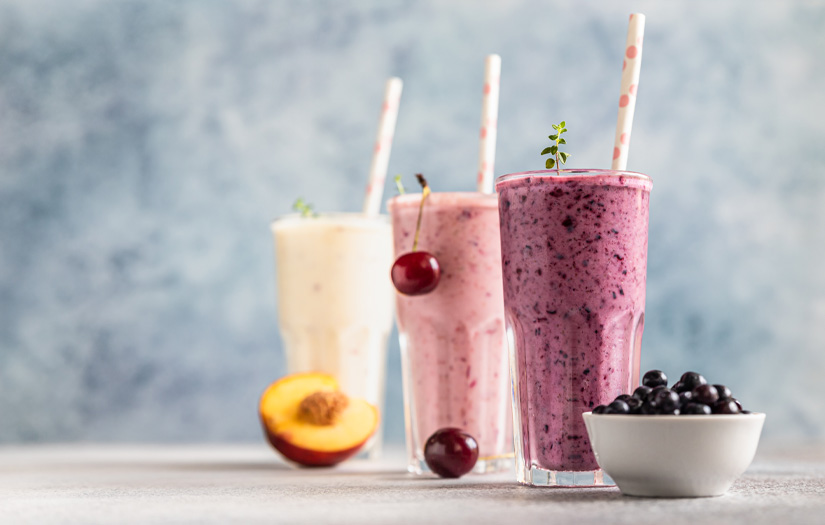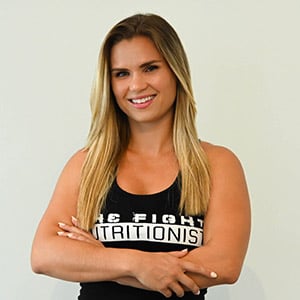New year, new you, right? It’s been over a month of 2023 and it’s a good stopping point to see if you’ve stayed true to the health and fitness goals you set for yourself.
Unfortunately, many, people tend to revert to old habits or struggle to keep up with their resolutions after the first four weeks due to unrealistic goal-setting. Too many goals are created, or the goals aren't maintainable over a long period.
However, 2023 is the year to put failure behind you by learning new methods to maintain your progress and stay true to your goals! By avoiding these major mistakes, you can have a better chance of making real dietary changes and turning them into long-term lifestyle habits.
Cutting Cold Turkey
Mistake #1 EVERYONE makes is cutting any bad habit of cold turkey. Why? The moment you decide you're eliminating any of your favorite vices such as alcohol, sweets, soda, chips, and more, you begin to crave them immediately. Those cravings almost always lead to binging later which ruins any diet progress you've been making during the week. Furthermore, feelings of failure can set in and lead you to give up on your initial health goals altogether.
While the notion of food "addiction" is still being investigated, one study in 2018 provided insight that individuals that regularly consume junk food can develop a dependency, and when said food is no longer consumed it can trigger similar "withdrawal" symptoms that are seen in drug and alcohol addicts. The more intense the "withdrawal" the less likely a diet attempt will be successful.
It should also be noted that many people develop "emotional" connections when consuming certain foods such as sweets. Therefore, if an event triggers an emotional response, you'll be more likely to crave your "comfort" food.
Be S.M.A.R.T.
So, cutting cold turkey is not the answer. What is the better solution?
Start SMART… Specific, Measurable, Achievable, Relative, and Time-bound. The idea of this tool is to start small, but by being specific and setting realistic and time-bound goals you can turn these goals into long-term habits.
Example: You always eat ice cream after dinner, and you want to cut back. Instead of never eating ice cream after dinner, start by saying "3 days a week I will not have ice cream after dinner" or begin just decreasing the serving size every night. Perhaps you eat 1 pint of ice cream every night, and first, you'll start by only consuming 1/2 the pint.
As you become more successful in accomplishing these small goals, you can create larger goals. Eventually, you'll have drastically cut down on your ice cream intake, but still, be able to enjoy it in healthier doses.
Fasting
If your intention for fasting is only to lose weight, stop now. Restricting time windows in which you're allowed to eat will only depress your ability to develop intrinsic hunger cues. Furthermore, it is not sustainable for many individuals — especially those that travel a lot or enjoy social events with friends and family.
The solution? Practice mindful eating and create a schedule or routine for yourself. When eating, be present with your meal, eliminate distractions, and tune into cues of fullness and satiation as you finish your food. You'll begin to slowly decipher if you're desire to eat is because you're hungry or just having an emotional reaction.
Additionally, timing meals and snacks roughly every 3 to 4 hours (especially protein intake) is equally as effective in helping individuals lose weight in comparison to fasting.
Moving to a Liquid Diet
Smoothie diets and juice cleanses are the quickest way to lose most of your lean body mass and fail at your "diet.” Furthermore, it will leave you constantly hungry and craving more food. Juices and liquid lack fiber and (most of the time) protein… two factors that play very important roles in helping you feel full, manage blood sugars and promote muscle growth.
So, what's a better way to go liquid? Smoothies are a convenient way to pack in some nutrients when you're in a time crunch and can technically "replace" a meal if done correctly.
Step 1: Don't frequently rely on smoothies as replacement meals.
Step 2: Make sure your smoothie contains protein, healthy fat, fruit, and a vegetable. Think of building a healthy plate, but instead, you're blending it. Protein and fats to keep you full, and fruits and vegetables to get your daily dose of essential nutrients!
Starting Any FAD Diet
It's easy to hop on the bandwagon with your friends and go keto, vegan/vegetarian, paleo, eliminate all dairy, gluten, etc.
Want to know why adopting a FAD diet leads to weight loss for most individuals? Each diet style eliminates one or more entire food groups! By restricting food choices, you're bound to eat less. However, the problem is that people adopt these diets for the wrong reasons and don't commit to them for long periods because they are either too difficult to maintain or don't align with their lifestyle.
Each FAD diet has its pros and cons, and while some may possess some health benefits, it's advisable to only begin a specific diet if you believe you can adhere to it forever. Ideally, you are choosing a lifestyle, not a diet.
Taking Too Many Supplements
When your kitchen cabinet begins to look like an aisle of GNC, you are setting yourself up for failure. While supplements can be beneficial to fill in the nutrient gaps you are lacking in your diet, they cannot replace actual food.
Individuals that start their new diet resolutions by buying a line of supplement products will likely quit this routine the quickest due to the redundancy, the massive number of pills that need to be consumed daily, and the financial burden it causes on their wallets.
The solution? Talk with a health professional or doctor about nutrient deficiencies you may be at risk for and stick with 1-3 vitamins that will round out your health.
How Else Can You Stay on Track?
Expect to fail at some point! You will not be perfect every day nor will you get stay "on track" all the time. Life happens and you will have to adjust. Have grace with yourself and don't allow one off day to completely derail your progress. Every day is a new start!
Don't constantly test your willpower, it will diminish over time. For example, if your goal is to stop drinking or eat fewer sweets, don't create scenarios where this desire is tested. Remove alcohol from your home, or stock sweets in the very back of the pantry. If it is not immediately in your line of vision, you'll likely not notice it.
Create small, realistic goals. Don't overwhelm yourself with so many tasks that it becomes daunting. Think SMART. For example, if your goal is to consume less alcohol, begin by picking one or two days of the week you will not drink. After the first month, increase to 3 or 4 days of the week.
Overall, creating goals needs to be realistic to your ability and lifestyle. Many people fail at health resolutions because they choose something unrealistic, restrictive, and not manageable long term. To create true changes, you must decide that these habits will become lifestyle changes.
Want more information about how to help clients find the best solutions to their nutrition needs? Check out NASM's Certified Nutrition Coach program and see how you can help clients achieve their diet and fitness goals.
Reference
https://www.sciencedirect.com/science/article/abs/pii/S0195666318306196?via%3Dihub

















